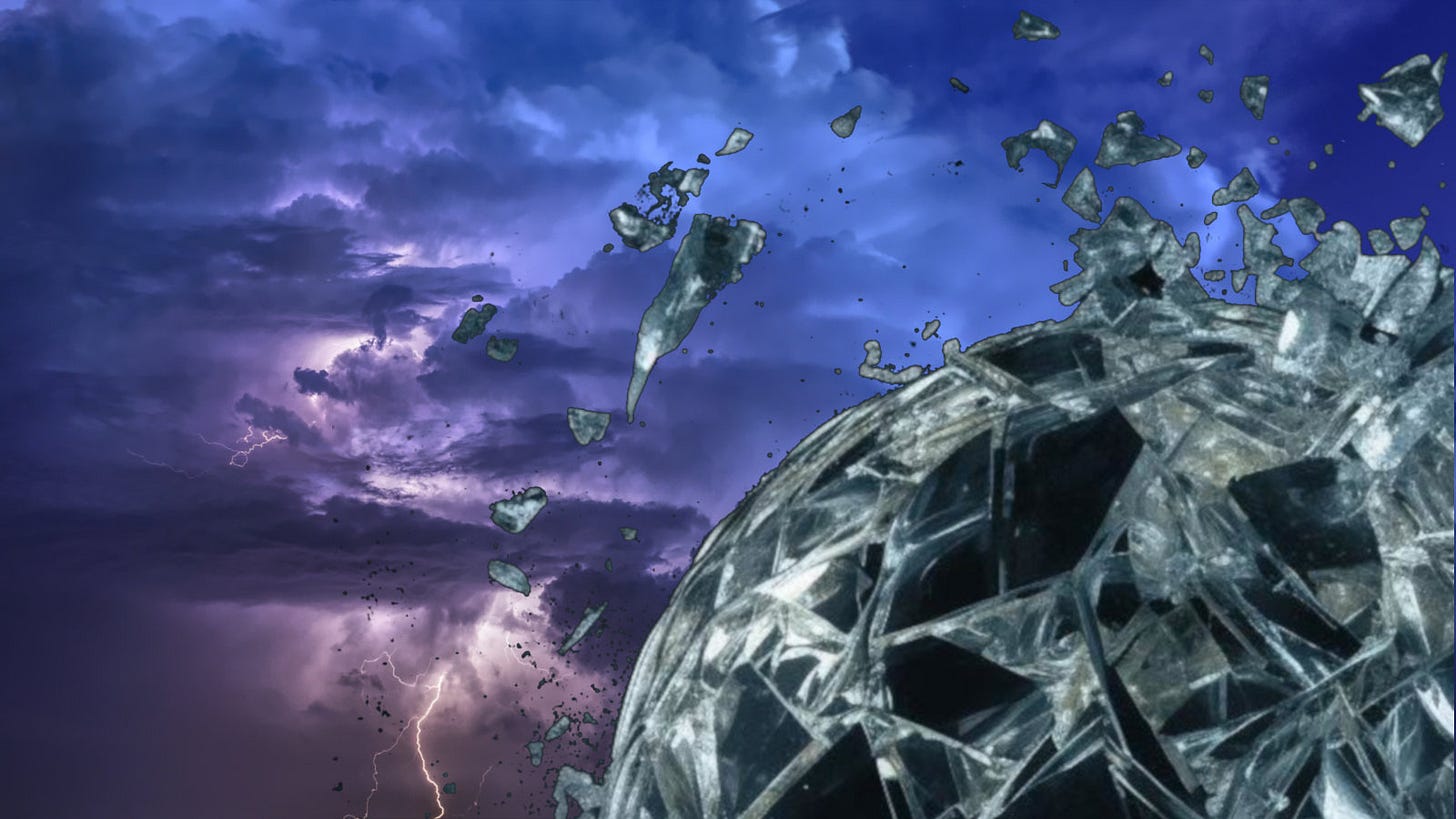Smash All Crystal Balls
The sciences have no power to predict the future, because nothing does
“Let not the future perturb you. You will face it, when the time comes, with the same reason that you meet the present.” - Marcus Aurelius, Meditations, Book VII, Section VI
There is a prevailing view that the best way of predicting the future is through the application of scientific methods. This assumption is not only mistaken, it is wildly unscientific. In so much as the sciences have any common methodology, it is the expectation that competing interpretations will duel over the evidence and that the overturning of a theory can be achieved by that clever experiment that is incompatible with the old explanation. Even this is a gloss on the inherently messy dimensions of research, but it brings to the fore a vital and apparently overlooked point: the sciences are not in the business of predicting the future. The sciences are concerned with modelling how things work, not in foreseeing what is yet to come.
The great success stories of the sciences came about either because of their explanatory power or through the construction of formulae that make accurate modelling possible. But the calculations of these mathematical constructs are predictions about the present. Armed with such tools, we can accurately say what will happen next, in the immediate future, provided we restrict our models to known variables, abstract away all other potential interventions, and otherwise contrive a scenario where determinate conditions will hold. Indeed, the creation of all the major formulae of physics entailed precisely the removal of the modelled phenomena from the chaotic maelstrom of existence and into an idealised mathematical world of contrived precision.
The capacity to model mechanical behaviours accurately is why advances in scientific mathematics have led to such a startling transformation in our technical prowess. Predicting the present is the essence of creating technology, since the knowledge of how things behave is the bedrock of engineering. But despite the enthusiasm of sci-fi novels such as Isaac Asimov's Foundation series, predicting the future is not one of the domains where technology can enhance our powers. One of the surest signs that we have tipped over into a superstitious era is the sheer volume of topics upon which absolute certainty is claimed in utter sincerity. Researchers who avow their unwavering certitude are either poor scientists or misled by their political commitments (which, frankly, might be two ways of stating the same situation).
So how do we predict the future? Philosophy is no better positioned in this regard than its cousins, the sciences, and indeed no academic field has achieved great traction on times to come. Neither will divination in any of its various forms allow us to see how things will turn out, although I do not want to dismiss entirely the benefits for certain people in consulting a psychic, whose practical techniques it seems to me aren’t a million miles away from psychiatry. When a psychic looks into a crystal ball they ‘see’ ambiguous symbols that their current punter aids them in interpreting. When it comes to predicting the future, this is the only available method, and dressing it up in scientific clothing doesn’t change its fundamental nature.
There is simply no means to bridge the gap between our knowledge of how things work and the expectation of what is to come. So don’t. Follow the advice of the Roman emperor and Stoic philosopher Marcus Aurelius and face the future “with the same reason that you meet the present”. This is the only viable solution to the problem of what is to come - and this doesn’t mean ‘don’t ponder the contingencies of future events’, but rather ‘do not let your anxiety about possible future events distract you from your reasoning’. Far too many catastrophes have been brought about by those whose fear of what will come unleashed ill-considered disaster.
If we wish to avoid future calamities, prudence is key. We can commit to the sciences for investigation of testable issues, and to citizen democracy to hold together our tapestry of ethical principles. The sciences excel in exploring possibilities through formal investigation, which helps to keep us informed. Yet it is our ethics that offer perhaps our best defence against the risks of the unforeseen, not by predicting what is to come - which is inherently unknowable - but by defending us from recklessness. If we wish to face the future with confidence, we might begin by smashing all crystal balls.




Thanks for this piece, Chris. Of course, the first thing that leaps to mind is climate change. I lament that no mature debate seems to be in the offing on this subject. There's more mudslinging and name-calling than actual dialogue. I truly wish to see some healing in the world, but how we're going to get there remains unclear.